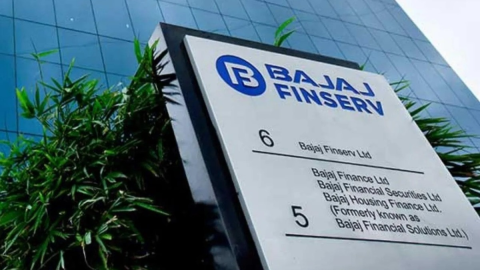Bajaj Finance Share Price Jumps by 3.6 Percent As Investors Look Forward to Bajaj Housing Finance IPO
Bajaj Finance Shares were in high demand on Thursday on back of positive news on the counter and Bajaj Group in general. Bajaj Finance Stock touched intraday high of Rs 7158 by the time of publication of this report. The day's low for Bajaj Finance was at Rs 6881 compared to earlier close at Rs 6900. The stock has touched 52-week high and low of Rs 8192 and 6187 respectively.
As September approaches, the financial markets are abuzz with anticipation surrounding the initial public offering (IPO) of Bajaj Housing Finance, a leading non-deposit-taking housing financier in India. A subsidiary of Bajaj Finance Ltd, the company is expected to debut on the stock exchanges in early September 2024. This IPO, estimated at Rs 7,000 crore, is not only a strategic move to raise capital but also a compliance measure in line with the Reserve Bank of India's regulatory requirements. Investors eagerly await details on the price band and bidding dates as they assess the potential of this significant offering.
Strategic and Regulatory Impetus for Going Public
Bajaj Housing Finance's decision to launch its IPO is driven by both strategic objectives and regulatory compliance. As an upper-layer non-banking financial company (NBFC-UL), the firm is mandated by the Reserve Bank of India (RBI) to list on the stock exchanges by September 2025. To adhere to this directive, Bajaj Housing Finance filed its draft red herring prospectus (DRHP) with the Securities and Exchange Board of India (SEBI) in June 2024, setting the stage for its Rs 7,000 crore IPO.
Structure of the IPO: Fresh Issue and Offer for Sale
The IPO will consist of a fresh issue of shares worth Rs 4,000 crore and an offer for sale (OFS) of shares worth Rs 3,000 crore by its parent company, Bajaj Finance Ltd. The primary aim of the fresh issue is to bolster Bajaj Housing Finance's capital base, enabling the company to expand its lending operations and seize future growth opportunities in the housing finance sector. The OFS will allow Bajaj Finance Ltd to monetize a portion of its holding, while also broadening the company’s shareholder base.
Utilization of IPO Proceeds
Bajaj Housing Finance plans to allocate the proceeds from the IPO strategically. A significant portion will be used to enhance the company’s capital base, ensuring it has the financial strength to support expanded lending activities. Additionally, the IPO will help the company boost its brand visibility and establish a public market for its shares in India. Part of the funds raised will also cover expenses related to the offering, ensuring that the company maximizes the benefits of going public.
Reserved Equity and Promoter Participation
The IPO will feature reserved portions of equity shares for eligible employees of Bajaj Housing Finance, providing an opportunity for internal stakeholders to participate in the company’s growth. Additionally, a set-aside for shares with a face value of Rs 10 each will be available for eligible promoters, including individuals and Hindu Undivided Families (HUFs) associated with the promoters' public equity ownership.
Peer Comparison and Market Valuation
Investors are likely to compare Bajaj Housing Finance’s financial metrics with those of its industry peers to assess its relative valuation. According to the DRHP, key competitors include PNB Housing Finance, Can Fin Homes, Aadhar Housing Finance, Aavas Financiers, Aptus Value Housing Finance, and Home First Finance. For instance, PNB Housing Finance and Can Fin Homes have price-to-earnings (P/E) ratios of 12.4 and 12.9, respectively, while Aadhar Housing Finance and Aavas Financiers exhibit P/E ratios of 18.7 and 3.3. LIC Housing Finance, another major player in the sector, has a P/E ratio of 7.3.
Strong Financial Performance Amid Portfolio Diversification
Bajaj Housing Finance's robust financial performance in the fiscal year 2023-24 underscores the attractiveness of its upcoming IPO. The company reported a net profit of Rs 1,731 crore, marking an impressive 38% increase from Rs 1,258 crore in the previous fiscal year. However, it’s important to note a slight decline in the proportion of home loans to total assets under management (AUM), from 61.7% to 57.8% as of March 31, 2024. This shift may indicate a strategic diversification of the company's loan portfolio, potentially reducing its reliance on home loans while exploring other lending avenues.
